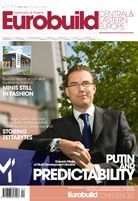Sponsoring students is not merely a pro bono publico activity, but could also be beneficial to a company. At least this is what Dorota Skowrońska, the director of the human resources department at Cushman & Wakefield, claims. She has been responsible for the involvement of the Polish C&W office in the International Real Estate Challenge programme for the last eight years. Every year the company spends a dozen or so thousand złoty on a several month long programme for students from Poland, with the final round taking place abroad. For two weeks they undergo a rather complicated testing process in cities such as Berlin, Hamburg and London. Under the supervision of local real estate agents, they are familiarised with the local office market (viewing a minimum of three office buildings) before presenting their recommendations, including a market analysis, to the potential tenants – a role played by the organisers. Those who score highly in the assessment of their performance of these t





























































